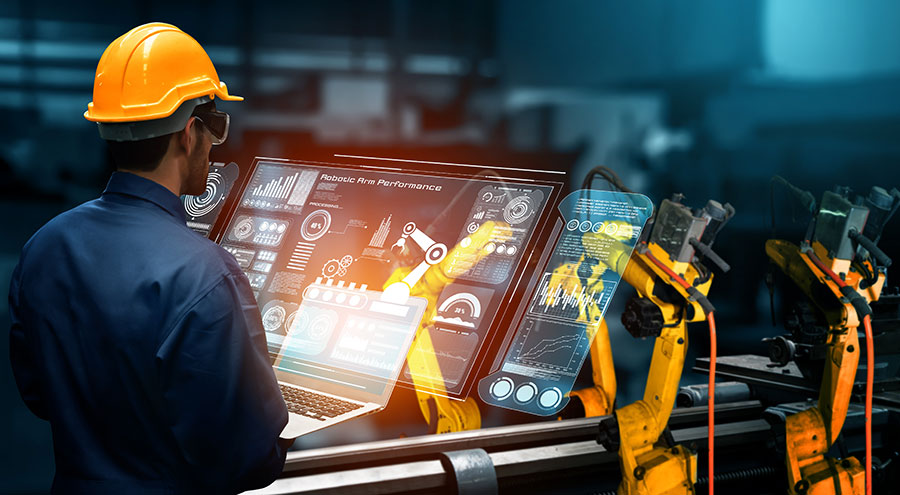
The Smart Factory

In the post-pandemic landscape, manufacturers are adopting modern technologies like AI, machine learning, business intelligence, etc – to gain a competitive advantage. The applications of these technologies are making the manufacturing processes more connected, intelligent, and dynamic – turning them into smart factories. The smart factory represents a next-gen, unified, and flexible system that devises learning from data collected through connected processes and production systems and adapts to new demands.
What is Smart Factory?
Smart Factory denotes a highly digitalized and connected infrastructure of intelligent machines and equipment, where processes improve through automation and self-optimization. Other than optimizing goods production, the benefits of smart factory extend into functions like supply chain management, measuring production against demands, quality control etc.
Here, automation is not just a simple function such as opening or closing a valve based on certain principles, but the ability to take complex decisions based on inputs received by applying machine learning and AI.
Machines, production units, and other parts can connect with IIoT (Industrial Internet of Things) or other advanced integrated circuits. These connected devices help manufacturers monitor, measure, sometimes control and allow communication of all the manufacturing processes.
Applications of Smart Factory
This highly modern system of connected operations generates data at an unfathomable scale. This data carries answers to the most critical questions. Smart factory gives the ability to learn from this data in real-time that results in better responses, enables proactive solutioning, and improves planning.
From production to maintenance to supply chain management – the Smart factory brings transformation to all manufacturing processes.
Improves visibility – Data flow from the shop to the top floor provides better visibility into the complete operations. Democratizing data analytics enables executives to get information at the right time and plan efficient operations. It inculcates timely manufacturing and shipment, reduces product wastage, and matches production with actual demand.
Applies predictive maintenance – Unexpected machine downtimes are a blocker when it comes to lean manufacturing. Running predictive models on machines data predicts wear and tear information of machines or their parts well in advance. It reduces asset downtime, maximizes production, and enables timely services for assets.
Optimizes supply chain management – Smart factory collates siloed information. It connects supplier data to factory data to customer data and back. Hence, enabling smart supply chain management, reducing gaps that may otherwise occur due to lack of coordination.
Ensures resource efficiency – Smart factory enables optimum use of resources and equipment. It brings out the precise information on resources that the operations need concerning when, where, and how, so as no overstocking or understocking occurs. It also provides intelligence on sustainable expansion strategies. It checks the utilization of energy resources. It enables the processes to run optimally, thereby reducing operational costs.
Improves human-machine collaboration – Smart factory empowers the communication between humans and machines. It automates most of the basic to advanced processes reducing the manual efforts required to do them. It provides mechanisms to remotely manage production systems, thereby reducing health risks and improves response times.
Maintains quality – The self-optimization characteristic of the smart factory predicts and detects quality defect trends in time. It can also help to bring out the causes of poor quality. It enables real-time data monitoring to perform regular quality checks to detect anomalies in the product or production cycle. It lowers wastage, scrap rates, and increases fill rates and yields. An optimized quality process leads to high-quality products with fewer defects and recalls.
Smart Factory is a revolution to streamline the most complex of the manufacturing operations. However, it is not the end game. It is a part of the continually evolving technology landscape that can redefine transformation for manufacturing. Every manufacturing industry must consider all aspects concerning their business model before incorporating smart factory solutions into their system.